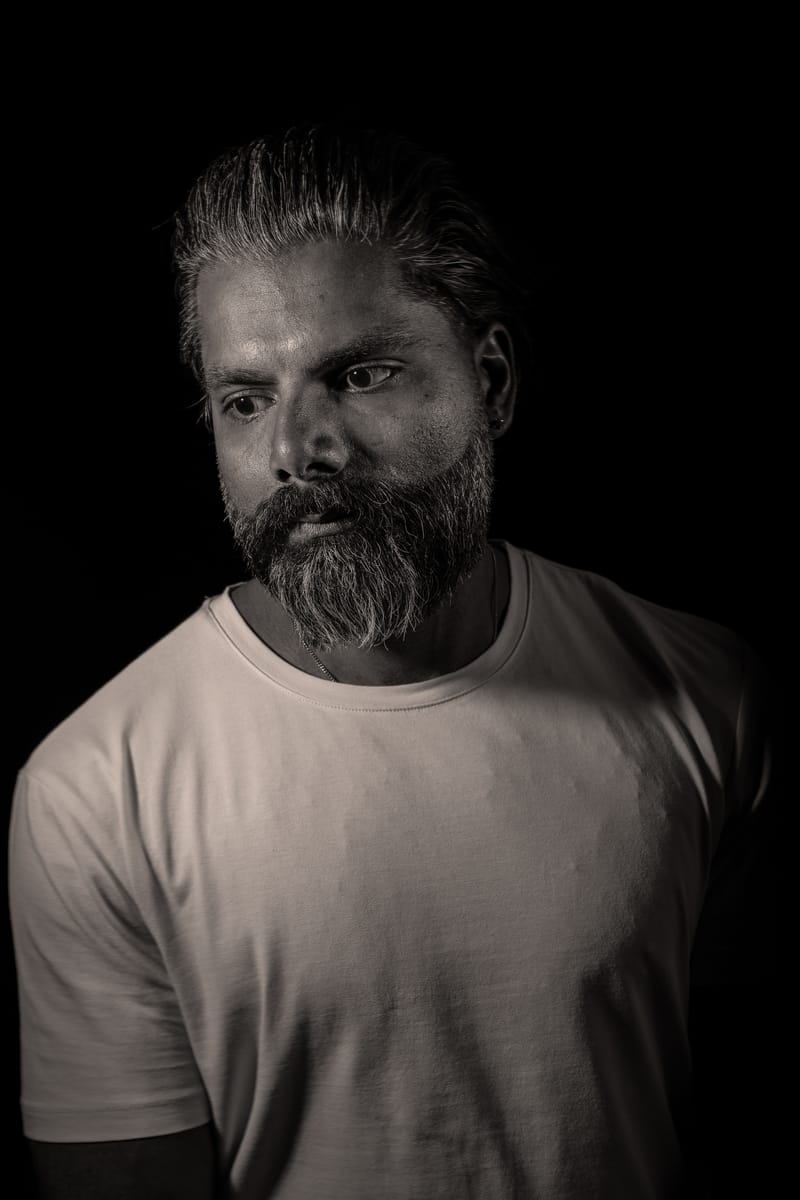Are We Headed for Utopia?
Last week, I hosted Jordan Conrad, PhD, LCSW (Listen Here) for an incredible conversation about the field of psychotherapy and the influence AI is beginning to have. We discussed the political layers that inevitably shape our work, from the way diagnoses are conceptualized to the biases therapists must examine within themselves. Dr. Conrad shared the foundation of his academic research. Still, the central thesis of our episode was broader: we explored how artificial intelligence has rapidly become the first point of contact for many people’s mental health concerns.
While the downsides of large language models include availability heuristics and confirmation bias, the models themselves are advancing in accuracy and nuance. As Dr. Conrad noted, AI can serve as a buffer in places where therapy is inaccessible — a bridge for psychoeducation, grounding, and triage. And yet, we both acknowledged that, even as virtual therapy offers greater convenience than ever, something fundamental is being lost: our social fabric and, with it, the pathways through which resilience is built. A utopian future — one where everything is optimized, sanitized, and made perfectly convenient — might soothe us temporarily, but it may also be quietly eroding our capacity to withstand life.
The Pilgrimage: A Lesson in Discomfort and Meaning
As I reflected on my conversation with Dr. Conrad and embarked on a personal pilgrimage in Saudi Arabia, I found myself confronted by discomfort from the moment I arrived. Saudi Arabia is evolving at a breathtaking pace — modern, structured, well-designed — and yet beneath the surface, some elements push me out of my comfort zone. The trip forced me into presence. Into humility. Into intentionality.
I was grateful for a conversation with my mom — without realizing it, she has been one of the most influential forces behind whatever resilience I do have. Even the “tough love” I once resented was part of the scaffolding that held me up in moments like these.
At the Holy Mosque, I watched thousands of people from every corner of the world — elders bent with age, children barely old enough to understand the meaning of the ritual, and everyone in between — performing physically demanding acts of worship. The diversity of bodies, languages, cultures, and capacities created a kind of sacred chaos. Yet within it all was order — the rituals themselves, the intention behind them, the unseen synchronization of millions moving toward one purpose.
What I witnessed was the opposite of utopia — and it was moving. There was discomfort, unpredictability, heat, physical exertion, and emotional intensity. And it was precisely because of these elements that the experience was transformative.
This is where the metaphor revealed itself: a world without friction is a world without growth.
Why the Pursuit of Utopia Weakens Us
— especially in the age of AI
Psychological research has long shown that resilience does not emerge from ease — it emerges from adaptive stress.
1. Stress Builds the “Psychological Immune System”
Donald Meichenbaum’s work on Stress Inoculation Training (SIT) demonstrates that exposure to manageable stressors strengthens our ability to cope with future adversity. Remove stress entirely, and the psychological immune system doesn’t develop; it atrophies. Humans need friction the way muscles need resistance.
A utopia — especially one mediated through AI — removes necessary struggle and replaces it with artificial smoothness. That might feel comforting, but it undermines exactly what makes us anti-fragile.
2. AI Risks Undermining Autonomy, Competence, and Connection
According to Self-Determination Theory, human flourishing relies on three psychological needs:
Autonomy — feeling we have agency
Competence — believing we can handle challenges
Relatedness — being connected to others
AI, especially as a substitute for real human interaction, threatens all three:
It provides ready-made answers, reducing autonomy.
It solves problems for us, reducing competence.
It becomes a stand-in for support, reducing relatedness.
When these needs are weakened, so is our resilience.
3. Over-Reliance on AI Reduces Critical Thinking
Emerging research shows that individuals who depend heavily on AI for emotional or cognitive processing demonstrate:
Reduced analytical reasoning
Superficial decision-making
Diminished ability to tolerate ambiguity
Higher emotional dependency
In other words, AI can easily become the “thinking” and “feeling” muscle we stop exercising.
4. Digital Comfort Is Making Us Lonelier, Not Stronger
Studies on digital mental-health tools and social platforms consistently link heavy use to:
Increased anxiety
Increased loneliness
Reduced face-to-face communication
Emotional withdrawal from real-world relationships
If AI removes discomfort, uncertainty, and the need for human engagement, it removes the conditions from which resilience actually arises.
The Problem With Utopia: It Removes the Sacred Tension We Need
Utopia assumes that goodness comes from eliminating chaos. But human development — psychologically, emotionally, spiritually — emerges from learning to navigate chaos.
What my pilgrimage taught me is that the beauty of life is not found in perfection, predictability, or perfect optimization. It’s found in:
tension
contrast
effort
surrender
mystery
You cannot algorithmically engineer meaning.
Rituals like tawaf are not designed for comfort. They are designed for transformation. They don’t remove struggle — they give it purpose. And when struggle is infused with purpose, it becomes growth.
This is where utopian thinking about AI becomes dangerous: It promises comfort without depth. Convenience without character. Answers without wisdom.
And perhaps most concerning, it suggests that the human experience might be improved by avoiding the very challenges that shape the soul.
So What Do We Do? The Path Forward Is Not Utopia — It’s Integration
AI is not the problem. Our relationship with AI is.
Instead of imagining AI as a replacement for human experience, we must use it as an augmentation — a tool that supports, but never supplants:
emotional struggle
interpersonal conflict
real-world discomfort
community
faith
meaning
moral agency
Progress should not be defined by how much hardship we eliminate, but by how much hardship we can face with humility, courage, and support.
The world does not need a utopia. It needs a generation willing to remain human in an age of algorithms.
Final Reflection
If my conversation with Dr. Conrad offered a roadmap for understanding the psychological consequences of outsourcing our inner lives to machines, then my pilgrimage provided the antidote: a reminder that meaning, resilience, and spiritual growth exist where control ends and surrender begins.
Utopia is not the goal — character is. Convenience is not the destination — connection is. And AI is not our salvation — responsibility is.
A world that is slightly chaotic, deeply human, and spiritually demanding will always serve us better than one that promises perfection.
If we can hold that truth with intention, then we can welcome AI without losing ourselves.

A snippet of the Episode
Head to YouTube for the full episode. Or Subscribe below:
What people are saying about the podcast:
Quote of the Week:
"A world without discomfort is utopia. But it is also stagnant. A world perfectly fair in some dimensions would be horribly unfair in others. A utopia has no problems to solve, but therefore no opportunities either."
Sponsors
Is your social strategy ready for what's next in 2025?
HubSpot Media's latest Social Playbook reveals what's actually working for over 1,000 global marketing leaders across TikTok, Instagram, LinkedIn, Pinterest, Facebook, and YouTube.
Inside this comprehensive report, you’ll discover:
Which platforms are delivering the highest ROI in 2025
Content formats driving the most engagement across industries
How AI is transforming social content creation and analytics
Tactical recommendations you can implement immediately
Unlock the playbook—free when you subscribe to the Masters in Marketing newsletter.
Get cutting-edge insights, twice a week, from the marketing leaders shaping the future.
Want to get the most out of ChatGPT?
ChatGPT is a superpower if you know how to use it correctly.
Discover how HubSpot's guide to AI can elevate both your productivity and creativity to get more things done.
Learn to automate tasks, enhance decision-making, and foster innovation with the power of AI.
The best HR advice comes from those in the trenches. That’s what this is: real-world HR insights delivered in a newsletter from Hebba Youssef, a Chief People Officer who’s been there. Practical, real strategies with a dash of humor. Because HR shouldn’t be thankless—and you shouldn’t be alone in it.
Subscribe to the Podcast and Newsletter
Looking to build your own Newsletter?
Follow my personalized link to get 20% off all Beehiiv plans:






